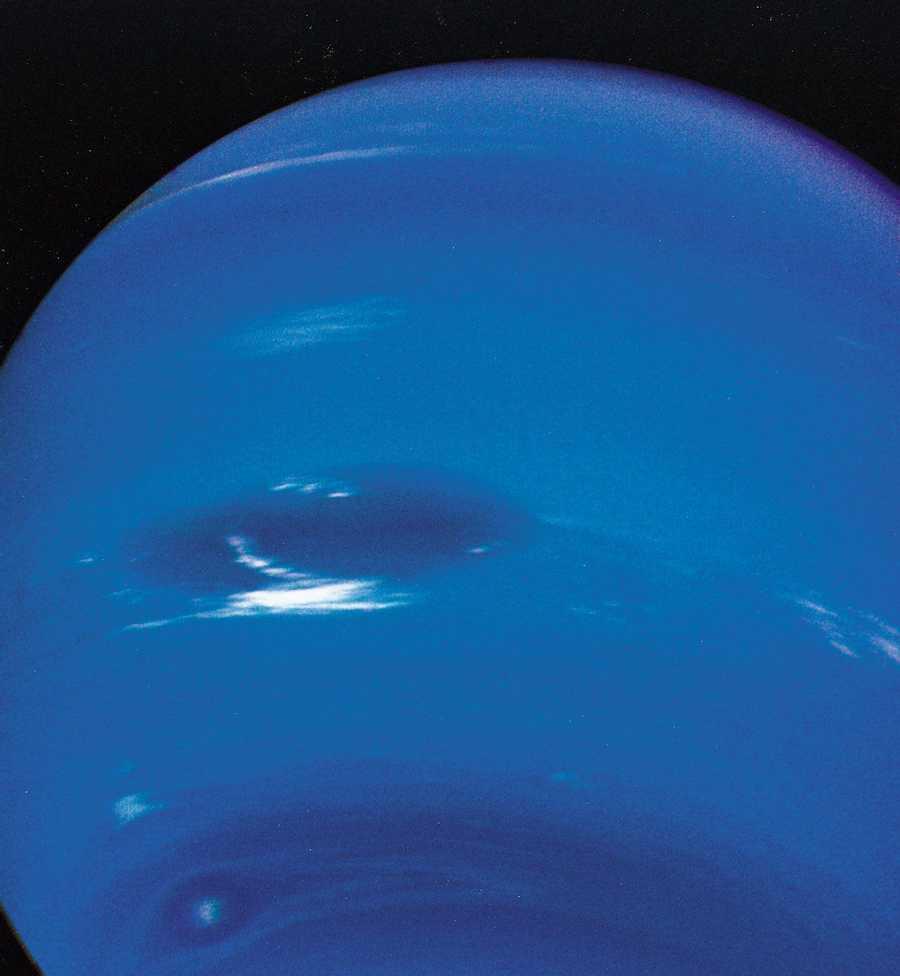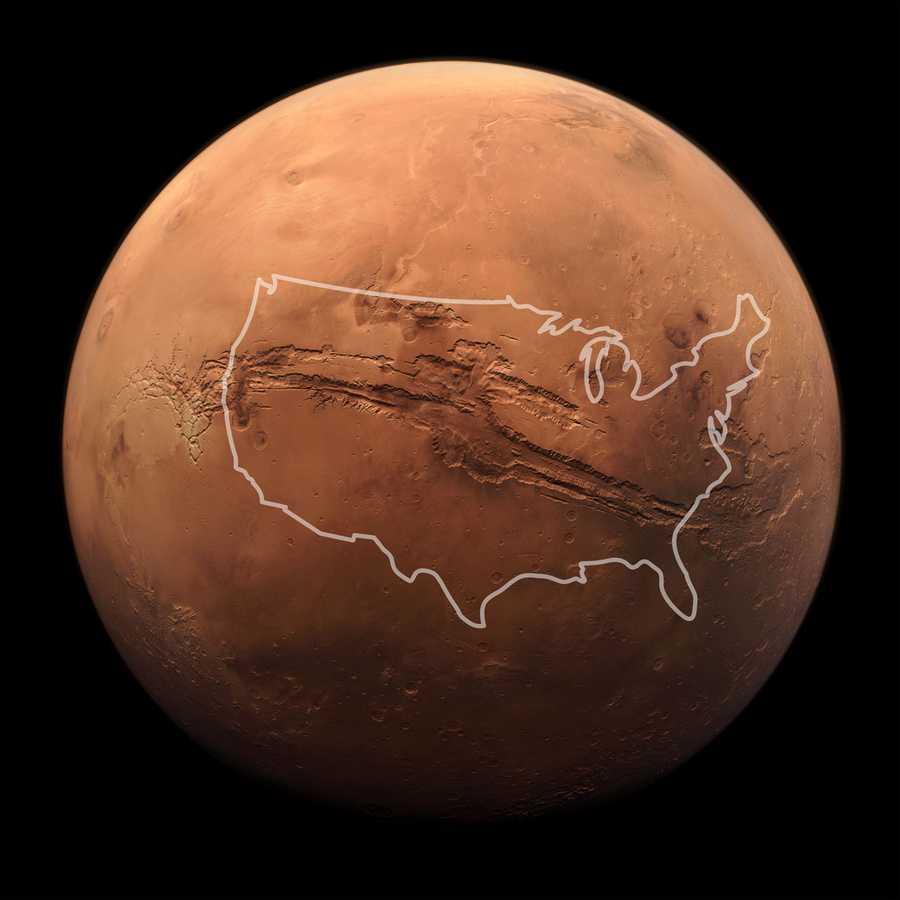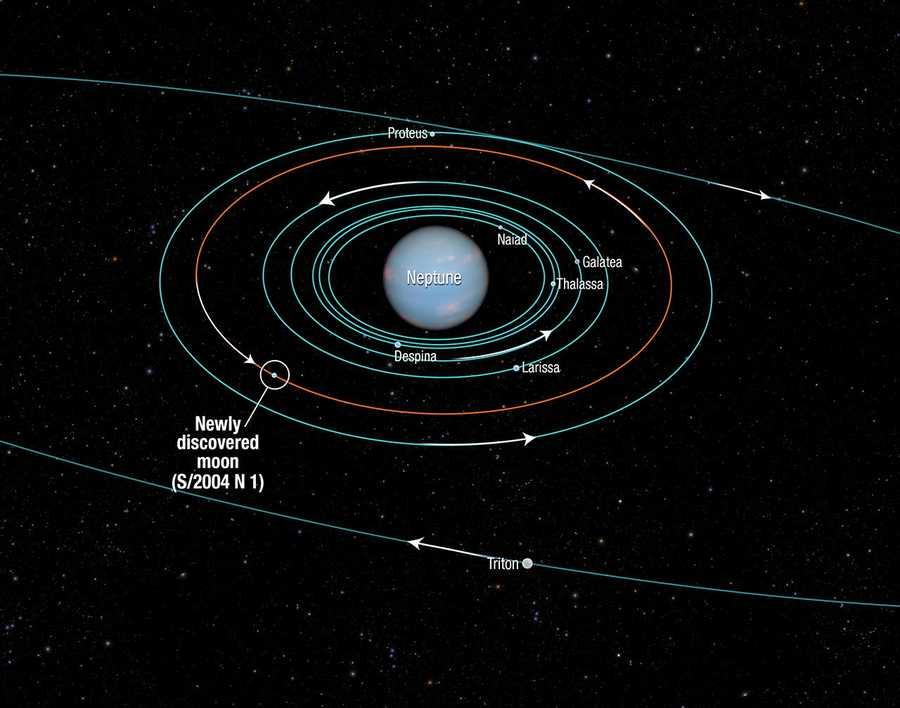Atmosphere
Neptune's atmosphere is made up mostly of hydrogen and helium with just a little bit of methane. Neptune's neighbor Uranus is a blue-green color due to such atmospheric methane, but Neptune is a more vivid, brighter blue, so there must be an unknown component that causes the more intense color.
Neptune is our solar system's windiest world. Despite its great distance and low energy input from the Sun, Neptune's winds can be three times stronger than Jupiter's and nine times stronger than Earth's. These winds whip clouds of frozen methane across the planet at speeds of more than 1,200 miles per hour (2,000 kilometers per hour). Even Earth's most powerful winds hit only about 250 miles per hour (400 kilometers per hour).
In 1989 a large, oval-shaped storm in Neptune's southern hemisphere dubbed the "Great Dark Spot" was large enough to contain the entire Earth. That storm has since disappeared, but new ones have appeared on different parts of the planet.
25
68 reads
CURATED FROM
IDEAS CURATED BY
I'm passionate about helping people live their best lives. I'm a lifestyle coach & burnout coach.
The idea is part of this collection:
Learn more about scienceandnature with this collection
How to make sustainable choices in everyday life
Identifying ways to reduce waste and conserve resources
Understanding the impact of human actions on the environment
Related collections
Similar ideas to Atmosphere
Surface
The red planet is actually many colors. At the surface, we see colors as brown, gold, and tan. The reason Mars looks reddish is due to oxidization—or rusting—of iron in the rocks, regolith (Martian “soil”), and dust of Mars. This dust gets kicked up into the atmosphere and from a distance makes t...
Moons
Neptune has 14 known moons, neptune's largest moon Triton was discovered on October 10, 1846, by William Lassell, just 17 days after Johann Gottfried Galle discovered the planet.
Since Neptune was named for the Roman god of the sea, its moons are named for various lesser sea gods and nymphs...
Read & Learn
20x Faster
without
deepstash
with
deepstash
with
deepstash
Personalized microlearning
—
100+ Learning Journeys
—
Access to 200,000+ ideas
—
Access to the mobile app
—
Unlimited idea saving
—
—
Unlimited history
—
—
Unlimited listening to ideas
—
—
Downloading & offline access
—
—
Supercharge your mind with one idea per day
Enter your email and spend 1 minute every day to learn something new.
I agree to receive email updates


